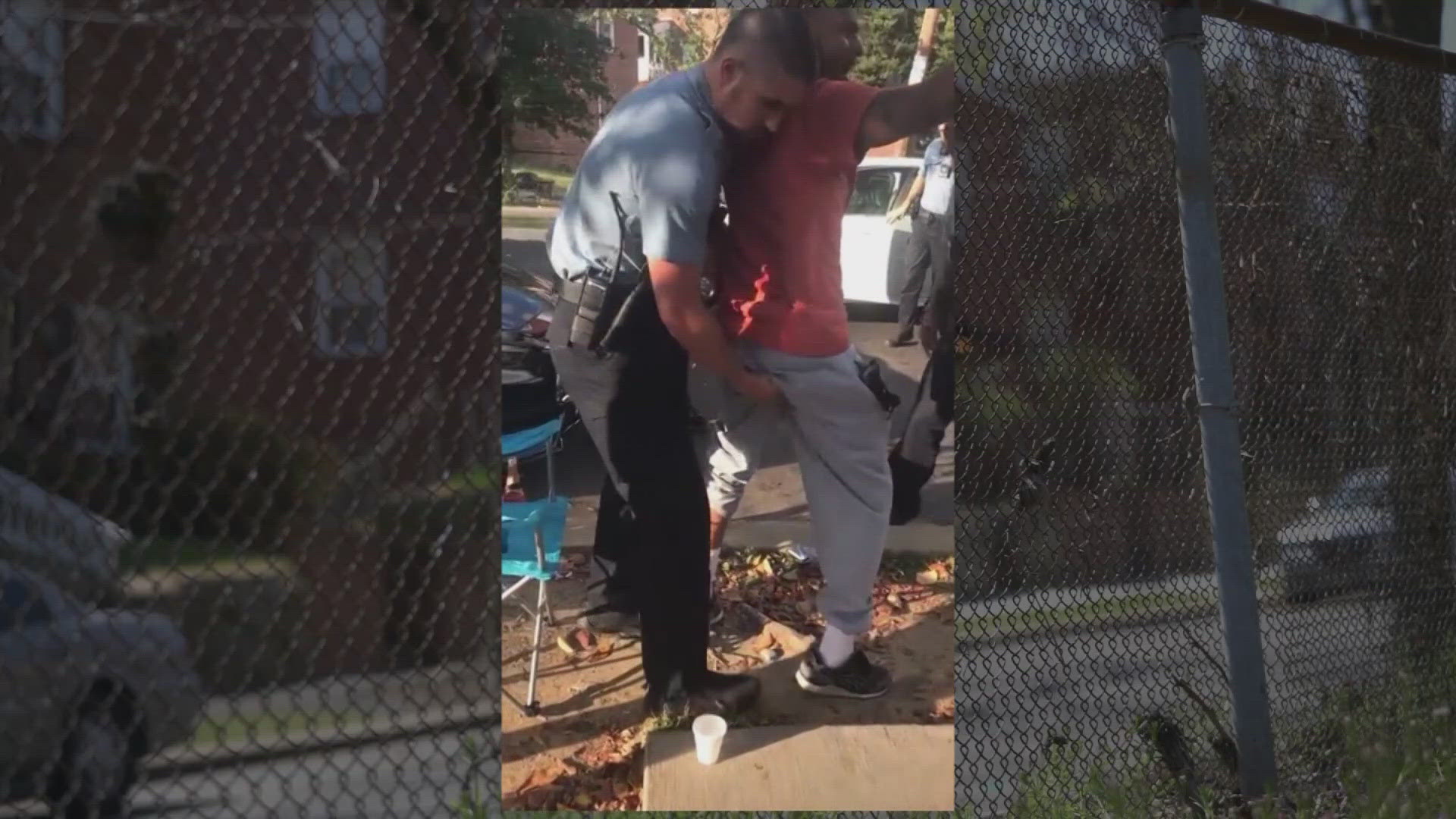WASHINGTON — A new report from the American Civil Liberties Union (ACLU) and the ACLU of the District of Columbia exposes troubling racial disparities in the Metropolitan Police Department's (MPD) stop-and-frisk practices. Entitled “Bias at the Core?: Enduring Racial Disparities in D.C. Metropolitan Police Department Stop-and-Frisk Practices,” the analysis scrutinizes data collected from January 1, 2022, to December 31, 2023.
The ACLU’s findings are stark. Despite Black residents making up just 44% of D.C.'s population, they account for a staggering 70% of those stopped by MPD. The report, which draws from a total of 136,805 stops, suggests that the practice disproportionately targets Black people, raising significant concerns about racial bias within the police department.
This analysis, which follows two previous ACLU reports on similar issues, underscores a troubling trend. The first report, published in June 2020, and the second in March 2021, both highlighted significant racial disparities in stop-and-frisk data. The current report reinforces these concerns.
“Research in other jurisdictions has shown that the most plausible explanation for consistent disproportionality is racial bias,” the report states. “Coupled with the disparities here and D.C.-specific anecdotal and contextual evidence, these patterns are suggestive of bias in MPD’s stop-and-frisk practices.”
In addition to documenting racial disparities, the report examines the effectiveness of stop-and-frisk in reducing gun violence. Data reveals that in 2022, only 0.9% of stops resulted in the seizure of a gun, with a small increase to 1.2% in 2023. The report argues that these low gun recovery rates indicate that stop-and-frisk is not a particularly effective tool for removing guns from the streets.
The report argues that the stop-and-frisk practice, in its current form, fails to deliver meaningful safety benefits while perpetuating racial bias. The analysis emphasizes that the practice often implicates individuals' constitutional rights, can be traumatic for Black and Brown communities, and undermines confidence in the criminal justice system.
Policy Advocacy Director at ACLU-D.C. Scarlett Aldebot calls for urgent reform. “It’s time for District leaders to truly question why they uphold stop-and-frisk practices that lack community safety benefits — especially when these practices implicate people’s constitutional rights, can be traumatic to Black and Brown communities, and erode trust in the criminal justice system,” Aldebot asserts. “Instead of leaning into harmful and ineffective policing, the District should build a public safety system that protects us from bias, increases trust in government, and keeps all our communities safe.”
WUSA9 reached out to MPD for comment and received the following statement:
The Metropolitan Police Department (MPD) continues its commitment to transparency by publishing comprehensive stop data twice a year, which supports the work of partners such as the ACLU in studying this data. However, it would be helpful for the public if descriptions about the data were also transparent. For example, whereas the ACLU gives the impression that all of the 68,940 stops in 2023 were “stops and frisks,” this is not at all accurate. Of the almost 69,000 stops, only 4,471 (less than 7%) included a protective pat down, sometimes called a frisk. Only 1% include a consent search. More broadly:
- The stops had a clear purpose. Almost 4 of every 5 stops resulted in enforcement action, either a ticket (58%) or an arrest (23%). The rest ended with investigation or other public safety response, such as mediating a dispute, educating a violator, or referral to services.
- The stops included many people traveling in or through the District. Sixty percent of the stops were traffic stops. Only 30% of the vehicles stopped and issued tickets for traffic violations were registered in the District; 70% were registered in another state.
- Most stops were resolved without any physical contact between the officer and the person stopped or his or her property. Only 10% of stops involved a protective pat down or a pre-arrest search of either a person or property.
- MPD stops play a vital role in supporting Vision Zero and making our streets safe for all users. Fifty-eight percent of all stops result in a ticket. Of these, almost one-third of the tickets were warning tickets. Eleven percent of arrests include a charge for a criminal traffic violation.
- Most stops are for traffic violations and have nothing to do with gun or gun crimes, but some stops help remove a significant number of guns from our neighborhoods. In 2023, MPD officers were able to remove 2,057 guns—64% of all guns recovered—from DC streets as a result of police stops. [The stop data only indicates that one or more guns was recovered. It does not indicate how many guns were recovered. This comes from another data system.]
- Most stops are brief. More than three out of four were resolved in about 15 minutes; 86% lasted 30 minutes or less.
The Department is committed to fair, professional, and constitutional policing in all aspects of its work as it strives to safeguard people and property in the District of Columbia. The Department works continuously to strengthen its service to the city. In the past year, the Department has focused on providing updated and comprehensive training for all its officers on the Fourth Amendment, including 10 hours of online and classroom training developed in partnership with the US Attorney for the District of Columbia. The Department is also supporting an independent study on Equity in Traffic Stops conducted by the University of Connecticut Institute for Municipal and Regional Policy. Researchers regularly stress that disparities, in and of themselves, are not sufficient evidence of racial profiling. We expect this study to be available in Fiscal Year 2025.
The ACLU’s new report is a wake-up call, urging us to rethink and improve stop-and-frisk policies to make them more just. For those interested in a deeper dive into the findings, the full report is available here.
At WUSA9, we’ve been committed to covering this issue for several years, shedding light on how these practices impact our community and advocating for meaningful change.
You can find our past coverage below:
RELATED:

